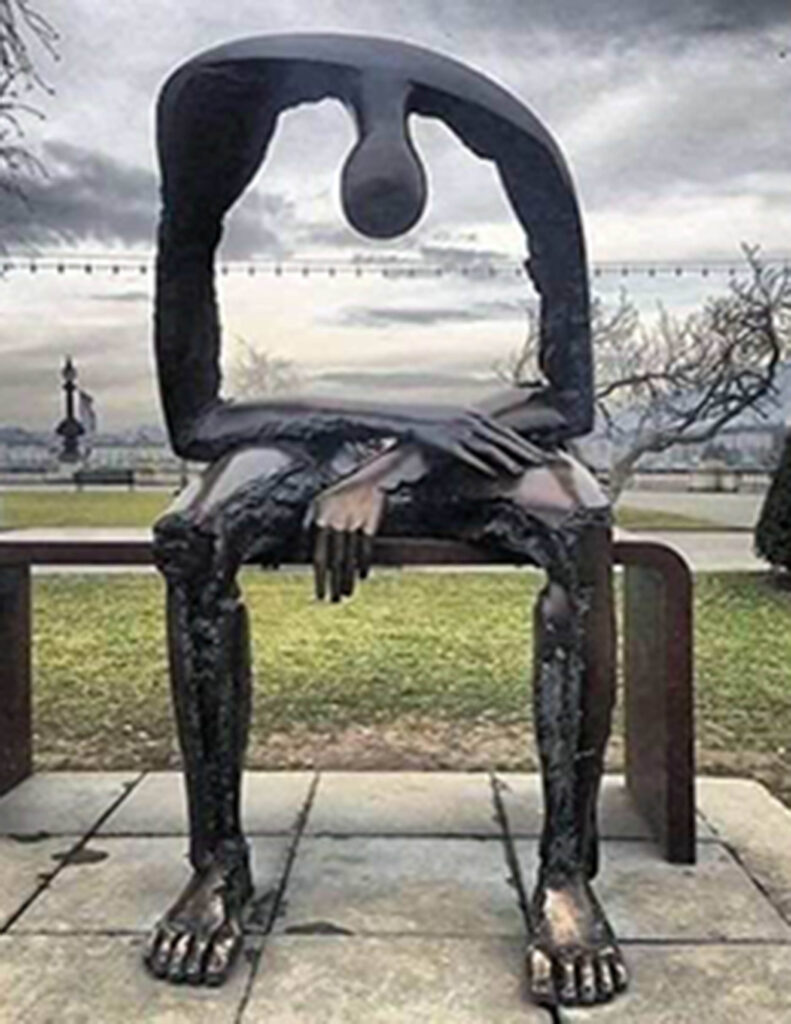
Losing a loved one is a personal and emotional experience. Everyone grieves differently, and there is no right or wrong way to navigate it. Grief can be overwhelming, but traveling can offer solace, healing, and a conscious way to grieve. This article explores how grief and travel intersect and how vacations can aid healing.
What is Grief Travel?
After the death of someone dear, we can lose ourselves in sadness—grief can feel like an all-consuming vortex of sorrow. Deciding to travel as a conscious way to grieve can pull us out of that isolation and provide insight, healing, transformation, relief, peace, and more.
Grief is a normal reaction to loss, and it can take many forms. Everyone’s grief journey is unique and influenced by their individual experiences and relationships. While there is no set way to cope with grief, some people have found traveling to be a source of comfort and healing. Traveling allows them to step outside of their familiar environment, break free from isolation, and gain new perspectives on life and loss.
The Healing Power of Travel
Grief has a way of enveloping us, making it difficult to see beyond our pain and sorrow. It can feel like an all-consuming vortex, sucking us into a cycle of sadness and despair. In these moments, the idea of embarking on a journey might seem daunting or even impossible. However, travel can provide a much-needed escape from the grip of grief and offer moments of respite and distraction.
Breaking the Cycle of Isolation
Experiencing grief can often lead to feelings of isolation, but traveling can help alleviate this by immersing us in new surroundings, introducing us to different cultures, and connecting us with other people. This offers an opportunity to interact with the world and regain a sense of belonging.
Nurturing the Spirit and Honoring the Lost Loved One
Travel can be a powerful tool for nurturing our vulnerable spirits and honoring the life of the loved one we have lost. It allows us to create new experiences, visit meaningful places, and engage in activities that hold significance for our healing process. By designing our travel itinerary around activities that acknowledge and embrace our grief, we can find solace, peace, and transformation along the way.
Setting the Tone for Travel
Before embarking on a trip as a means to process death, it is essential to plan specific activities that align with your healing goals. This planning process helps set the tone for your journey and ensures that you make the most of your travel experience. Consider reflecting on the things that might be important to see or do, ranging from the simplest to more elaborate options.
The Six Categories of Grief Travel
Dr. Karen Wyatt, a hospice physician and the founder of End-of-Life University Blog, defines six categories of grief travel that you can consider when making plans. These categories provide a framework for designing a trip that aligns with your healing needs:
1. Restorative Travel
Restorative travel focuses on spending time with others or finding a haven where you can retreat and receive support. Staying with a friend or family member for a short while can provide the comfort and understanding you need. Alternatively, you may choose to travel to a retreat specifically designed to support those experiencing grief and loss.
2. Contemplative Travel
Contemplative travel involves incorporating mindfulness and self-compassion practices into your journey. Engaging in activities like meditation, visualization, or reflective writing can help you honor your feelings of loss and find peace within yourself.
3. Physically Active Travel
Physically active travel allows you to channel your emotions and release energy through physical activities. Consider planning activities such as hiking, biking, or running to help you cope with the emotional energy of grief. Exploring new skills or practicing yoga can also provide a holistic approach to healing.
4. Commemorative Travel
Commemorative travel involves planning a trip to a place that holds special memories of your loved one. It provides an opportunity to honor their life by designing a ceremony or ritual that holds personal meaning for them. Alternatively, if your destination does not have shared memories, you can create a new ritual along your journey to commemorate your loved one.
5. Informative Travel
Informative travel focuses on learning and seeking answers to unanswered questions. You may explore your family history, visit places of ancestral significance, or research the town or region where your relatives or ancestors originated. Gathering information and understanding more about your family roots can bring a sense of closure and connection.
6. Intuitive Travel
Intuitive travel embraces the unknown and allows you to follow your instincts without rigid planning. It involves letting go of strict itineraries and allowing yourself to wander, explore, and get lost in the places you visit. Being present and open to unexpected experiences can lead to profound moments of healing and self-discovery.
By considering these categories and their associated activities, you can tailor your trip to meet your specific needs and preferences, ensuring a more meaningful and healing travel experience.
Making the Most of Your Journey

When planning a trip to heal grief, there are various elements and activities you can incorporate to enhance your experience. Here are some ideas to consider:
Restorative Elements: Music, Journaling, and Fragrances
During your journey, use music, journaling, and soothing fragrances to restore your well-being. Make a playlist of songs that resonate with your emotions and bring comfort during difficult moments. Carry a journal to express your thoughts, emotions, and memories. Use calming fragrances such as lavender, sage, or rosemary to create an atmosphere of tranquility and comfort.
Spa Services and Body Treatments
Consider spa services and body treatments as additional avenues for restoration and healing while mourning. Therapeutic touch through massages can release physical and emotional tension, providing a judgment-free environment to release trauma and promote relaxation.
Finding Joy and Laughter While Grieving
It’s important to engage in activities that bring positivity and lightness. Laughter has numerous benefits, including boosting immunity, reducing stress, and elevating mood. Allow yourself to experience moments of joy, even amidst grief. Additionally, practicing contemplation and mindfulness can be very beneficial.
The Power of Contemplation and Mindfulness
Dedicate time each day to reflect on your loved one and cultivate inner peace. Engage in guided meditations to help navigate the grieving process. Physical activities can also release emotional energy.
Releasing Emotional Energy Through Physical Activities
Engage in physically active pursuits to release emotional energy. Plan activities like hiking, biking, or practicing yoga to channel your emotions into physical movement. Endorphins released during exercise can elevate your mood and alleviate tension and pain.
Commemorating the Loved One with Ceremonies and Rituals
Say a prayer you have prepared. These acts of remembrance can bring solace, peace, and closure. If you are seeking answers or interested in exploring your family history, take the opportunity to embark on informative travel. Conduct research before your trip and gather the information that will help you understand the places you visit and the people you meet.
Discovering and Learning through Informative Travel
When researching your family history, gather information from relatives, local libraries, and genealogy websites. Take advantage of your time to explore your ancestors’ stories and origins. If you’re open to the unknown, embrace the freedom of an unplanned journey and allow yourself to wander.
Following Your Intuition for an Unplanned Journey
Unplanned moments during travel can lead to unexpected connections and profound healing experiences. Travel is a powerful tool for healing grief, providing an opportunity to gain new perspectives, find solace, and honor the memory of lost loved ones. While grief may never completely dissipate, travel offers a way to navigate through it.
Conclusion
Plan activities aligned with healing goals to discover new meaning in life. Embrace the journey and find comfort in knowing loved ones want you to live life fully and find happiness. The timing of travel after loss is a personal decision based on emotional readiness.
Frequently Asked Questions (FAQs)
1. How long should I wait before traveling after the loss of a loved one?
The timing of travel after the loss of a loved one is a personal decision. It depends on your emotional readiness and ability to handle the challenges during your trip. Take the time you need to grieve and ensure that you are in a stable emotional state before embarking on a journey.
2. Is it okay to feel guilty about enjoying a trip while grieving?
While grieving, it’s normal to feel guilty for experiencing moments of joy. However, permit yourself to feel these emotions without judgment or guilt. Your loved one would want you to find happiness during the healing process.
3. What if I don’t feel ready to travel yet?
Reflect on memories and find comforting gestures during the grieving journey. While travel can aid in healing, it is not a cure-all. It provides opportunities for self-reflection and new experiences.
4. How can I honor the memory of my loved one while traveling?
Dealing with grief is a complex and unique process for each individual. It’s important to engage in different forms of support and self-care besides traveling to fully address your grief.
5. Can travel really help me heal from grief?
Travel can provide a conducive environment for healing grief, but it is not a magic solution. It offers opportunities for self-reflection, new experiences, and connections with others. Through travel, you can gain insights, find moments of peace, and develop a deeper understanding of yourself and your grief. However, the healing process is complex and unique to each individual. It is essential to engage in other forms of support and self-care alongside travel to fully address your grief.
